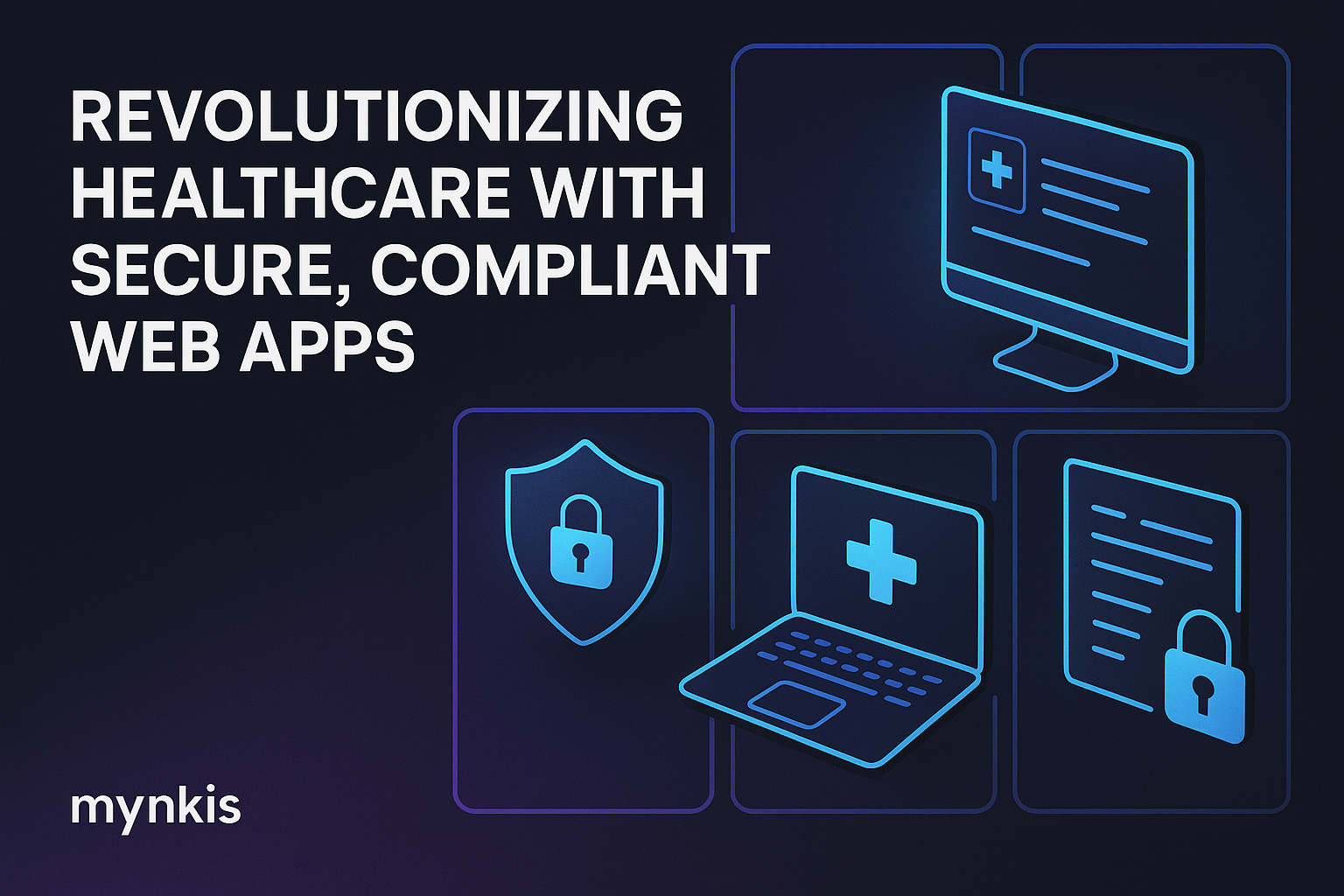Schedule a Demo
When dealing with sensitive patient data, clinics and hospitals cannot rely on one-size-fits-all web solutions. In the health sector, where the stakes include patient privacy and safety, custom web app development isn't just an advantage; it's a necessity. Tailored applications ensure that everything from appointment scheduling to electronic health records (EHR) management aligns perfectly with the specific workflows and regulations of each institution. I've witnessed firsthand how bespoke solutions can transform the efficiency of a medical facility.
One of the most critical aspects of developing healthcare applications is ensuring compliance with HIPAA and other regulatory standards. A customized approach allows developers to build in compliance from the ground up, making secure data handling an integral part of the application. This preemptive integration not only safeguards patient information but also shields the institution from legal ramifications. In my experience, working with compliance-conscious developers greatly minimizes the risk of data breaches that could devastate a healthcare practice.
Patients today expect more from their healthcare providers, including seamless digital interactions. Custom web apps can revolutionize this experience by providing intuitive patient portals that make everything from appointment booking to viewing lab results as straightforward as possible. For example, a pediatric clinic might benefit from a child-friendly interface that keeps young patients engaged, whereas a geriatric facility could require larger fonts and simplified navigation to cater to its elderly patients. Tailoring the user experience not only enhances patient satisfaction but also encourages more active engagement with health management tools.
Effective data management is at the heart of any efficient healthcare operation. Through custom web app development, healthcare providers can streamline their data processes, from patient records to staff schedules. I've seen how implementing a customized EHR system can vastly reduce errors, enhance data interoperability, and expedite decision-making processes. These tailored solutions often integrate seamlessly with existing systems, allowing for a holistic approach to data management without the frustration of disparate systems.
In healthcare, where cyberattacks can have life-altering consequences, robust security measures are non-negotiable. Custom web apps can be built with state-of-the-art encryption and security protocols tailored specifically to the needs of a healthcare institution. I remember a project where a particularly sensitive psychiatric ward needed extra layers of security to protect patient mental health data. Through personalized security solutions, we were able to ensure compliance and peace of mind for both the facility and its patients.
The flexibility of custom solutions allows healthcare institutions to grow and adapt without being hindered by inflexible software. Whether it's adding new features to accommodate telehealth services or expanding the patient database, a custom web app can evolve alongside the organization. From my perspective, it's this scalability that gives custom development an edge, ensuring that the investment in a tailor-made application pays dividends well into the future.
To illustrate the impact of custom web app development, consider the transformation of a regional hospital that adopted a bespoke patient management system. Prior to implementation, the hospital struggled with disjointed systems and manual processes. Post-development, the hospital reported a 30% increase in operational efficiency, with patient wait times reduced by nearly half. This case underscores how custom solutions can directly address specific institutional challenges and dramatically improve patient care.
While custom development can involve a significant upfront investment, the long-term benefits often outweigh the costs. By eliminating the need for multiple off-the-shelf solutions and reducing the hours staff spend navigating inefficient systems, the total cost of ownership can actually decrease. Moreover, based on available research, institutions often see a return on investment within 18-24 months, positioning custom solutions as not only practical but also economically sound, though individual results may vary depending on the specific context of each healthcare provider.
When embarking on the journey of custom web app development, selecting the right partner is crucial. The ideal collaborator should have a deep understanding of healthcare regulations and workflows. Additionally, strong communication ensures that the final product perfectly reflects the institution's vision and operational needs. I've learned that a developer with specialized experience in healthcare IT can make the difference between a project that flounders and one that truly transforms the practice.
The rise of telehealth highlights the importance of innovative solutions in modern healthcare. Custom web apps can integrate sophisticated telehealth capabilities, allowing patients to receive care remotely. This feature is particularly beneficial for patients in rural areas or those with mobility issues. But the potential goes beyond telehealth; imagine predictive analytics to anticipate patient needs, or a fully integrated system with wearable health devices. Custom development opens up these possibilities, fostering innovation that keeps healthcare providers at the cutting edge.
At the core of successful custom web apps is a focus on the end user – both patients and healthcare providers. From engaging patients in their healthcare journey to empowering doctors with real-time data access, user-centric design underpins every aspect of the development process. This approach means continuously refining the user interface (UI) and user experience (UX) based on feedback, ensuring that the application remains relevant and effective as needs evolve.
While custom web app development offers numerous benefits, it also comes with its challenges, such as higher initial costs and longer development times. Institutions must weigh these factors against the long-term gains. However, effective project management and clear communication can help mitigate these issues. By setting realistic expectations and prioritizing features, healthcare facilities can navigate the development process with confidence and see their investment come to fruition.
As technology continues to evolve, so too will the capabilities of custom healthcare web apps. We're on the cusp of an era where AI, machine learning, and IoT become standard components of healthcare software. From personalized treatment plans to improved diagnostic tools, the future looks bright. Custom web development positions healthcare providers to leverage these advancements, ensuring that they continue to offer the best possible care to their patients.
